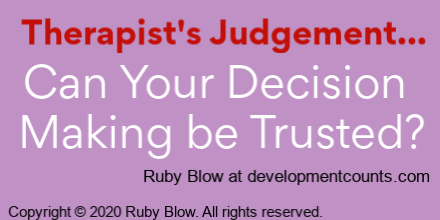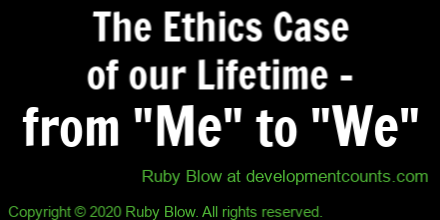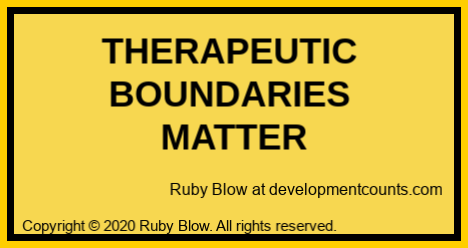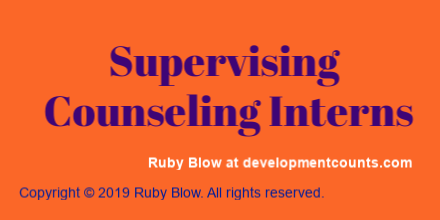Abuse of Power
It can be subtle… or it can knock the wind of you. We tend to be more sensitive to when someone is abusing their power over us. We are far less aware of when we are abusing the power we have over others.
In clinical supervision or its counterpart in a non-therapy setting (“mentoring”) the supervisor is in a position of power.
In administrative supervision and its non-therapy counterpart, it is simply referred to as being someone’s “boss.” We see many examples of abuses of power especially when those two roles are combined.
When someone is suppose to be both your support for learning and development (clinical supervisor/mentor), yet also serves as your boss (administrative supervisor), the circumstance is ripe for abuse of power.
The Power Differential
The counselor has many opportunities for responsible use of power in the therapeutic relationship by managing the power differential. The power differential has to do with the balance of power within the relationship based on the role identity and social cultural identities of the client. So identities such as:
- therapist or client;
- supervisor or supervisee;
- independently licensed or not independently licensed;
- boss or employee/contractor;
- male or female;
- educated or less educated;
- lots of resources or fewer resources;
- majority or minority;
- adult or child and so on. To the degree that one person meets more of the criteria on the left side of the “or” than the right side of the “or’s” listed above…they have more inherent power within the relationship.
The Risks of Abusing Power
Based on their assessment of an individual (patient/client/consumer), the counselor may determine whether or not someone will be involuntarily sent to a hospital for further evaluation and admission.
The risks as it relates to abuse of power can only be remedied if the more “powerful” person is aware and conscious of when, how and why they are leveraging their power.
You could be the person on either side of this equation.
You could be the one determining someone’s:
- employment;
- hospitalization;
- level of support.
What happens if you don’t feel respected?
What happens if you have a disagreement based on preferences or values?
What happens if you don’t like the other person? What happens if you are more empowered in the relationship than that person is to address the problem(s)?
Would you notice if the other person felt pinned into a corner? Would you notice if they felt their options were being stripped away?
Would it matter to you that they felt that way? Why or why not?
Would we blame them for not telling us about their discomfort? Would you simply hope that they would say:
- “I don’t like this.”
- “This isn’t fair.”
- “You’re limiting my options.”
- “I’m being misunderstood.”
The Responsibility that Comes with Power
When we are the person who is in a position of power…we assume that if someone confronts us that we can handle it. We assume that if someone confides their truth and vulnerability…that we can handle it. That we will be able to tell if they are “right” and we are “wrong.” We think that the truth will resonate with us. We see ourselves as fair and reasonable beings.
We believe that if we are wrong, we will be able to set aside our egos and do what is right for the other person. We think we will make the difficult choice to do what it is right even if it is to our disadvantage. Even if acknowledging the other person’s rights or feelings leads to:
- A loss of our sense of purpose or a perceived devaluation of our role.
- An admission that we behaved in a discriminatory manner.
- Having to confront that not being fully in charge of someone (because they resisted our advisement) makes us feel less important or a loss of control.
Those who abuse their power are rarely “monsters.” Those who abuse their power simply assume others are like them; they assume that others agree with them. At a minimum those who abuse power think that others “should” agree with them.
So how can you stop yourself from abusing your power?
- Challenge yourself to truly inform people of their rights as it relates to a service they are receiving.
- Acknowledge the risks and the benefits (even if it was someone else’s role to do so).
- Give them advice that truly has their best interests at heart. Even if that means they should go to a competitor.
- Even if that means in some way admitting that you have unresolved issues with power and authority.
Copyright © 2016 Ruby Blow. All rights reserved.
Share your thoughts on Linkedin, Facebook, Twitter





